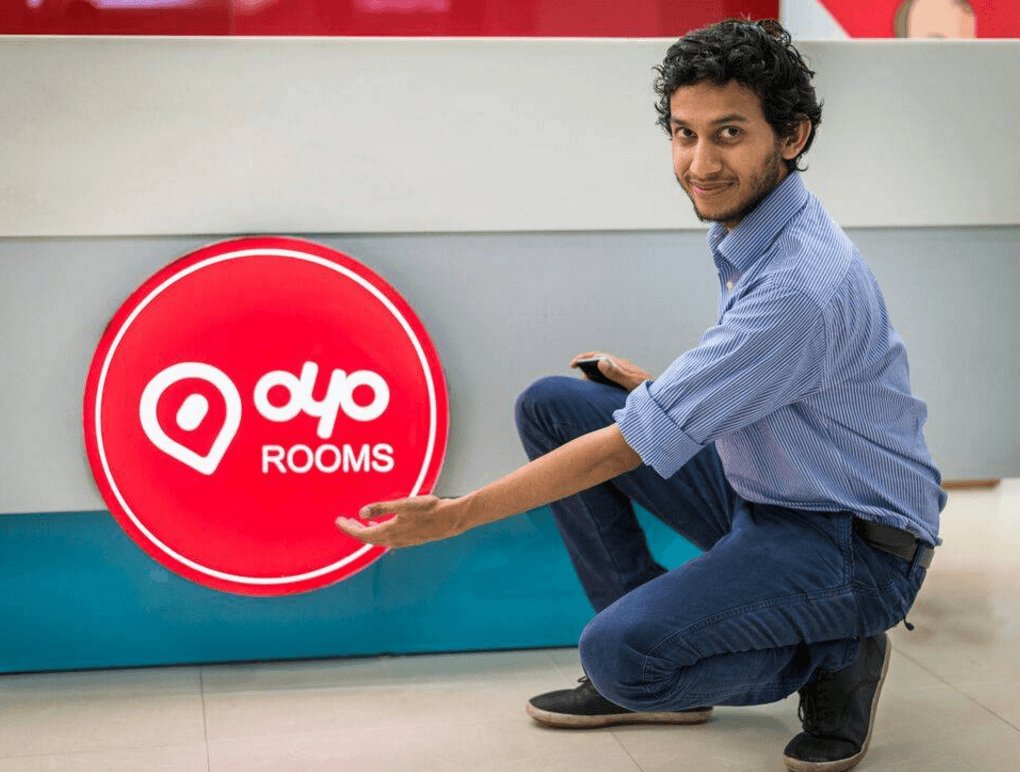OYO Rooms — India’s Hospitality Startup Scaling Globally
OYO Rooms — India’s Hospitality Startup Scaling Globally
By
Leah Rosenfeld
Last updated:
August 22, 2025
First Published:
November 30, 2025

Founded in 2013 by Ritesh Agarwal, OYO Rooms started with a simple mission: make affordable and standardized accommodation accessible to everyone. What began as a small network of budget hotels in India quickly transformed into one of the fastest-growing hospitality chains in the world. Agarwal, who started OYO at just 19 years old, saw a massive opportunity in India’s fragmented hotel market, where inconsistent service quality and pricing plagued travelers.
Rapid Growth and Global Expansion
Within just a few years, OYO became India’s largest hotel chain and began its expansion abroad. By 2018, OYO had entered China, Malaysia, Nepal, and the UK, eventually extending its footprint to over 80 countries. Backed by investors like SoftBank Vision Fund, Sequoia Capital, and Lightspeed Venture Partners, OYO raised more than $3 billion in funding, fueling its global push. At its peak, OYO managed over 1 million rooms worldwide, competing with traditional hotel giants and new-age platforms like Airbnb.
Technology at the Core
Unlike many budget hotel aggregators, OYO built its growth model around technology. The company developed tools for revenue management, pricing optimization, and property operations that helped small hotel owners increase occupancy and revenue. For travelers, OYO’s mobile app and website offered an Airbnb-like experience with standardized stays at affordable prices. This tech-driven approach not only differentiated OYO from competitors but also made it attractive to investors.
Challenges and Setbacks
Despite its meteoric rise, OYO faced significant hurdles. Rapid expansion led to management difficulties, strained relationships with hotel partners, and inconsistent service quality. The COVID-19 pandemic in 2020 further hit OYO hard, as global travel came to a standstill. The company had to scale back operations, cut jobs, and exit several markets to stay afloat. In addition, regulatory challenges and lawsuits from partners created further turbulence.
The Path to Reinvention
In recent years, OYO has focused on restructuring and profitability rather than just aggressive growth. It streamlined its business by prioritizing key markets like India, Europe, and Southeast Asia while leveraging technology to improve hotel operations. OYO also invested in vacation rentals and corporate travel solutions, diversifying its portfolio. Reports suggest that the company has significantly reduced losses and is gearing up for a long-anticipated IPO.
Impact on Global Hospitality
OYO’s model disrupted the traditional hotel industry by empowering small hotel owners to compete with large brands. In India, it standardized budget travel in ways that hadn’t been done before, opening up millions of affordable stays for middle-class travelers. Internationally, OYO showed how an emerging-market startup could challenge global hospitality giants by focusing on technology, scalability, and affordability.
Final Thoughts
OYO’s journey reflects the highs and lows of a startup scaling at breakneck speed. From a teenager’s idea in India to becoming one of the world’s largest hospitality players, OYO’s story is one of ambition, resilience, and adaptation. While its path has been far from smooth, the company remains a powerful example of how startups from emerging economies can go global and redefine industries.
Popular articles
Subscribe to unlock premium content
The Rise of Ultra-Limited Designer Furniture Auctions

The Power of Subtlety in Design

The Rothschild Legacy of Wealth and Influence

The Rise of Ultra-Limited Designer Furniture Auctions

The Power of Subtlety in Design

The Rise of Ultra-Limited Designer Furniture Auctions









